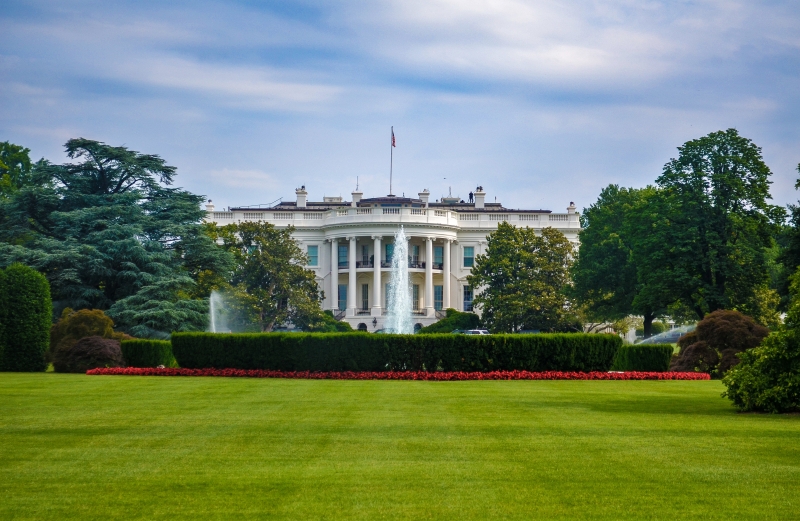
- Details
- By Native News Online Staff
The White House Tribal Nations Summit brings together tribal nation leaders from the 574 federally recognized tribes and federal governement officials, including President Joe Biden, Vice President Kamala Harris, and Interior Secretary Deb Haaland (Pueblo Laguna) in a two-day nation-to-nation summit.
This summit fulfills a campaign promise made by the Biden-Harris ticket made during last year's presidential election.
White House Tribal Nations Summit Agenda
Day 1- Monday, November 15, 2021
11:00 a.m. - 4:00 p.m. - Eastern Time *All times are estimates and subject to change
Day 1 Tribal Nations Summit Streaming Link:
11:00 a.m. - Eastern Time
Welcome Remarks Secretary Deb Haaland- US Department of the Interior President Joe Biden First Lady Jill Biden Attorney General Merrick Garland
12:15 p.m. - Eastern Time
Policy Panel: Combatting Covid-19 in Indian Country Featuring Tribal leaders in conversation with: Secretary Xavier Becerra- US Department of Health and Human Services Dr. Anthony Fauci- Chief Medical Officer to the President
1:25 p.m. - Eastern Time
Policy Panel: Native American Educations and Native Languages Featuring Tribal leaders in conversation with: Secretary Miguel Cardona- US Department of Education Secretary Deb Haaland- US Department of the Interior
2:30 – Eastern Time
Policy Panel: Public Safety and Justice Featuring Tribal leaders in conversation with: Secretary Deb Haaland- US Department of the Interior Deputy Attorney General Lisa Monaco- US Department of Justice Secretary Dennis McDonough- US Department of Veterans Affairs Secretary Tom Vilsack- US Department of Agriculture White House Tribal Nations Summit Agenda
Day 2- Tuesday, November 16, 2021
11:00 a.m. - 4:00 p.m. - Eastern Time *All times are estimates and subject to change
Day 2 Tribal Nations Summit Streaming Link:
11:00 a.m. – Eastern Time
Welcome Remarks White House Director of Intergovernmental Affairs Julie Rodriguez
11:00 a.m. – Eastern Time
Policy Panel: Climate Change Impacts and Solutions Featuring Tribal leaders in conversation with: White House Climate Advisor Gina McCarthy Council on Environmental Quality Chair Brenda Mallory
12:20 p.m. – Eastern Time
Policy Panel: Tribal Treaty Rights and Sacred Lands Featuring Tribal leaders in conversation with: Assistant Secretary Bryan Newland- Bureau of Indian Affairs Secretary Janet Yellen- US Department of the Treasury White House Domestic Policy Director Susan Rice
1:15 p.m. – Eastern Time
Administration Listening Session Featuring Tribal leaders in conversation with: Secretary Deb Haaland- US Department of Interior Assistant Secretary Bryan Newland- Bureau of Indian Affairs General Counsel Sam Bagenstos – Office of Management and Budget Special Assistant to the President Libby Washburn- White House
2:30 p.m. – Eastern Time
Policy Panel: Economic and Workforce Development Featuring Tribal leaders in conversation with: Secretary Marty Walsh- US Department of Labor Administrator Isabella Guzman- Small Business Administration American Rescue Plan Coordinator Gene Sperling
3:30 p.m. – Eastern Time
Policy Panel: Infrastructure, Housing, and Energy Featuring Tribal leaders in conversation with: Secretary Jennifer Granholm- US Department of Energy Secretary Pete Buttigieg- US Department of Transportation US Poet Laureate Joy Harjo Vice President Kamala Harris
More Stories Like This
Native News Weekly (August 25, 2024): D.C. BriefsZuni Youth Enrichment Project Announces Family Engagement Night and Spring Break Youth Programming
Next on Native Bidaské: Leonard Peltier Reflects on His First Year After Prison
Deb Haaland Rolls Out Affordability Agenda in Albuquerque
Boys & Girls Clubs and BIE MOU Signing at National Days of Advocacy
Help us defend tribal sovereignty.
At Native News Online, our mission is rooted in telling the stories that strengthen sovereignty and uplift Indigenous voices — not just at year’s end, but every single day.
Because of your generosity last year, we were able to keep our reporters on the ground in tribal communities, at national gatherings and in the halls of Congress — covering the issues that matter most to Indian Country: sovereignty, culture, education, health and economic opportunity.
That support sustained us through a tough year in 2025. Now, as we look to the year ahead, we need your help right now to ensure warrior journalism remains strong — reporting that defends tribal sovereignty, amplifies Native truth, and holds power accountable.
 The stakes couldn't be higher. Your support keeps Native voices heard, Native stories told and Native sovereignty defended.
The stakes couldn't be higher. Your support keeps Native voices heard, Native stories told and Native sovereignty defended.
Stand with Warrior Journalism today.
Levi Rickert (Potawatomi), Editor & Publisher

